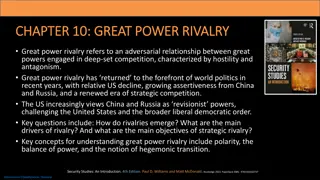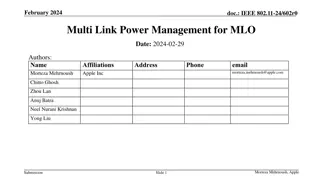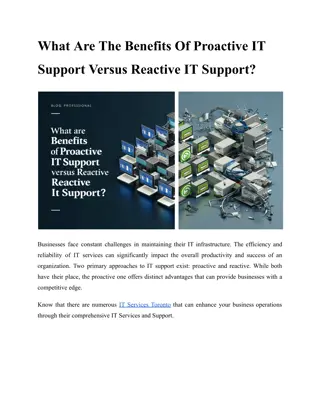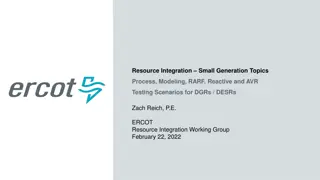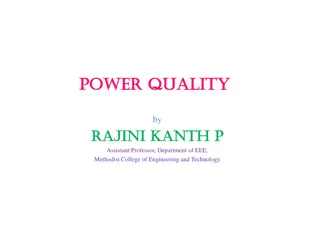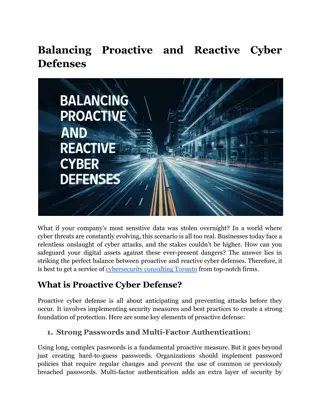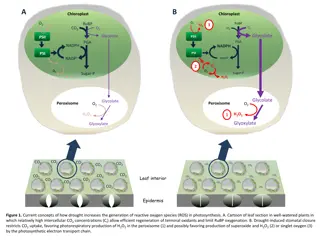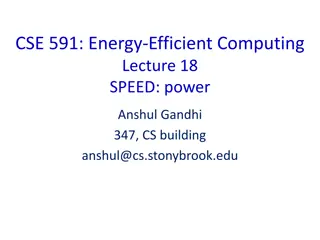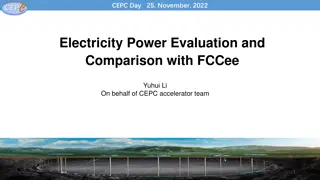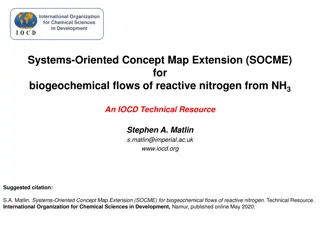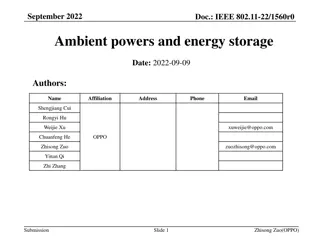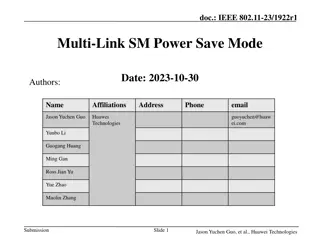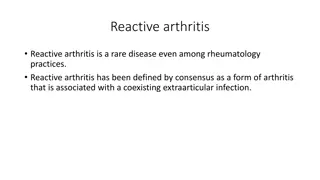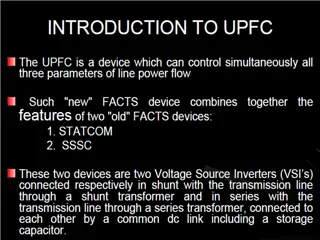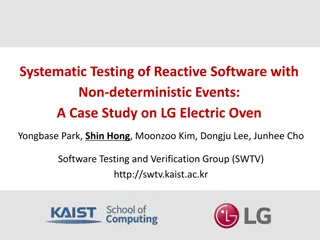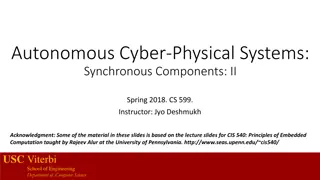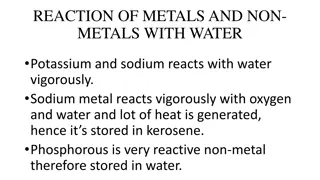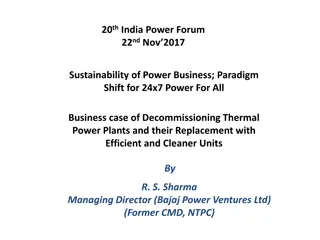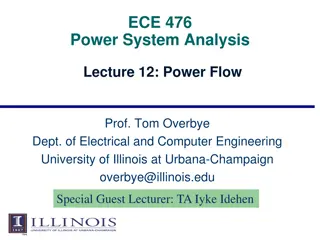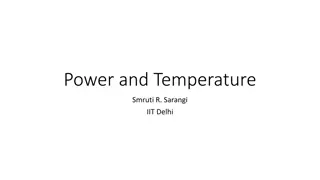Cisco Systems Fault Managed Power Portfolio Overview
Cisco Systems offers an industry-leading Fault Managed Power (FMP) patent portfolio comprising 24 active assets across seven INPADOC families. The portfolio includes patents supporting fault-managed power systems, PoE deployments, DC power distribution, DC-DC conversion, and HVDC connectors. The FMP
4 views • 4 slides
Power Distribution in Data Centers Overview
Power distribution and equipment play crucial roles in commercial data center infrastructure, ensuring reliable and efficient operations. Adequate power routing from the grid or generators to data center equipment is vital for stable operations, data integrity, and performance maintenance. This incl
4 views • 19 slides
Great Power Rivalry in World Politics: Understanding Polarity, Balance of Power, and Hegemonic Transition
Great power rivalry involves deep competition and hostility between major players like the US, China, and Russia. The concept is explored through polarity, balance of power, and hegemonic transition theories, discussing power distribution, strategies, and transitions in the international system. The
4 views • 12 slides
Improving Multi-Link Power Management Efficiency in IEEE 802.11 Networks
The document discusses challenges with per-link power mode changes in multi-link scenarios in IEEE 802.11 networks, proposing a solution for more efficient power management. It addresses issues such as latency and inefficiencies in signaling for power mode changes, introducing scheduled multi-link p
6 views • 9 slides
Understanding Power Transfer and Impedance Matching in Circuits
Exploring the concept of maximizing power transfer between a source and load through impedance matching. Learn about complex conjugates, real and magnitude of complex numbers, average power in circuits, and the importance of minimizing reflected power. Discover how incident, reflected, and delivered
3 views • 33 slides
Understanding COVID-19's Impact on Joint Health: Reactive Arthritis vs Viral Arthritis
Explore the distinction between reactive arthritis and viral arthritis in the context of COVID-19, discussing symptoms, triggers, and potential long-term consequences on joint health. Learn how viral infections can lead to acute arthralgia and arthritis, including common pathogens such as Hepatitis
0 views • 30 slides
What Are The Benefits Of Proactive IT Support Versus Reactive It Support?
Stop IT headaches! Discover how proactive IT support prevents problems & saves you money compared to reactive fixes.
1 views • 5 slides
Overview of Farm Power Sources and Utilization in Agriculture
Farm power sources in agriculture include human, animal, mechanical, and renewable energy. Human power is costly but versatile, while animal power is traditional and provides manure. Mechanical power from tractors and engines is efficient. India's farm power sources reflect a mix of traditional and
0 views • 12 slides
Resource Integration Small Generation Topics and Processes
This document discusses various topics related to small generation resources such as Distributed Generation Resources (DGR) and Distributed Energy Storage Resources (DESR). It covers processes, modeling, Reactive and Automatic Voltage Regulation (AVR) testing scenarios, timelines, simplified modelin
1 views • 39 slides
Understanding C-Reactive Protein (CRP) Test: Uses and Principle
C-Reactive Protein (CRP) is a liver-produced protein that indicates inflammatory conditions. The CRP test helps detect infections, monitor diseases like cancer, and evaluate inflammatory conditions. The test principle involves latex agglutination for CRP detection in human serum.
0 views • 21 slides
Understanding the Power of Java Reactive Programming
Java Reactive Programming offers a solution to handling increasing data complexity and diverse device types in today's fast-paced business environment. By embracing reactive principles, businesses can accelerate their transformation by building flexible, loosely-coupled, and scalable systems. Learn
0 views • 18 slides
Understanding Power Quality and Its Impact on Electrical Systems
Power quality refers to the characteristics of electrical power that drives sensitive equipment. It involves voltage and current deviations from ideal waveforms, impacting the efficiency and reliability of electrical systems. Various types of power quality phenomena exist, such as voltage variations
1 views • 16 slides
Balancing Proactive and Reactive Cyber Defenses
Learn how to balance proactive and reactive strategies in cyber defense. Protect your business with a comprehensive security approach.\n
2 views • 6 slides
Understanding Noise Control Methods in Environmental Engineering
Explore the concepts of noise control in environmental engineering, focusing on mufflers, reactive mufflers, and noise control in the transmission path. Learn about absorptive and reactive mufflers, their principles, and applications. Discover how barriers and panels can effectively reduce noise tra
0 views • 9 slides
Strategies for Children with SEMH Needs by Sofia Hussain
Exploring strategies for children with SEMH needs, this content discusses in-the-moment thinking and reactive strategies presented by Dr. Sofia Hussain. It delves into addressing concerning behaviors, practitioner emotions, and ways to support both practitioners and children. The approach emphasizes
0 views • 11 slides
Understanding Drought-Induced Reactive Oxygen Species Generation in Photosynthesis
Leaf responses to drought conditions leading to increased generation of reactive oxygen species (ROS) in photosynthesis are explained. Drought-induced stomatal closure affects CO2 uptake, promoting H2O2 production in peroxisomes and potential ROS production by the photosynthetic electron transport c
0 views • 5 slides
Requirements for Grid Connection of Wind Farms in Hellenic Grid Code
The Hellenic Grid Code outlines the specific requirements for wind farms regarding grid connection, including frequency and voltage operation boundaries, active/reactive power boundaries, voltage/reactive power control, and load-frequency control. These requirements ensure the safe and efficient int
0 views • 6 slides
Helicopter Power Management Guidelines
Understanding the factors that can lead to power required exceeding power available in a helicopter is crucial for safe operation. Indications such as uncommanded descent, rotor droop, loss of tail rotor authority, and right yaw signal potential issues to watch out for. Knowing when such occurrences
0 views • 11 slides
Exploring Power Efficiency in Computing Systems
In this lecture series on energy-efficient computing, various concepts related to dynamic frequency scaling, power capping, power shifting, power modeling, and power measurement are discussed. The impact of power on server speed is explored, alongside strategies for improving performance within powe
0 views • 17 slides
Comparison of Electricity Power Systems Between CEPC and FCCee
The evaluation and comparison of electricity power systems between the CEPC and FCCee accelerators reveal the power breakdowns, RF power consumption, magnet power supply, and overall power usage. Differences in power consumption for various components such as RF, magnets, and vacuum systems are high
0 views • 19 slides
Systems-Oriented Concept Map Extension for Reactive Nitrogen Flows
International Organization for Chemical Sciences in Development presents a Systems-Oriented Concept Map Extension (SOCME) focusing on biogeochemical flows of reactive nitrogen from NH3. The concept explores core reaction subsystems, energy input subsystems, equilibrium conditions, and the integratio
0 views • 11 slides
Ambient Power Harvesting Technologies Overview
This document discusses various ambient power harvesting technologies such as RF energy, solar power, light, and thermal energy. RF-based energy harvesting utilizes radio waves for power transmission with potential applications in logistics, smart homes, and environmental monitoring. Solar power off
0 views • 12 slides
Understanding Different Types of Artificial Intelligence
Artificial Intelligence is categorized into Narrow AI (Weak AI), General AI, and Super AI based on capabilities, while Reactive Machines, Limited Memory, Theory of Mind, and Self-Awareness are types based on functionality. Each type serves a specific purpose with varying levels of intelligence. Narr
0 views • 27 slides
Power Quality Monitoring and Evaluation in Modern Energy Systems
Power quality is crucial for stable operations in energy systems. This content discusses issues in power supply, reasons for measuring power quality, consequences of bad power quality, methods for measuring power quality, and evaluation techniques for compliance reports. Tracking power quality param
0 views • 21 slides
Power Dynamics in the Hellenistic World: A Study of Olympias of Macedon
Exploration of power dynamics in the Hellenistic world through the multidimensional exercise of power by Olympias of Macedon. The study delves into various forms of power such as reward, coercive, legitimate, referent, and expert power, shedding light on their roles in shaping leadership and influen
0 views • 20 slides
Enhancing Power Efficiency in IEEE 802.11 Multi-Link SM Power Save Mode
The document discusses how Multi-Link Operation (MLO) in IEEE 802.11be can improve throughput and reduce latency but may increase power consumption for non-AP devices. It introduces the concept of Multi-Link SM Power Save mode to optimize power usage by activating multiple links only when necessary,
0 views • 10 slides
Understanding Power Consumption in Memory-Intensive Databases
This collection of research delves into the power challenges faced by memory-intensive databases (MMDBs) and explores strategies for reducing DRAM power draw. Topics covered include the impact of hardware features on power consumption, experimental setups for analyzing power breakdown, and the effec
0 views • 13 slides
Understanding Reactive Arthritis: Symptoms, Diagnosis, and Treatment
Reactive arthritis, a rare disease associated with infections like Chlamydia, Salmonella, and Yersinia, presents with musculoskeletal features such as oligoarthritis, enthesitis, and dactylitis. Extraarticular manifestations include eye involvement and genitourinary symptoms. Diagnosis involves lab
0 views • 9 slides
Overview of Unified Power Flow Controller (UPFC) in Power Systems
A Unified Power Flow Controller (UPFC) is a combination of a Static Synchronous Compensator (STATCOM) and a Static Synchronous Series Compensator (SSSC) interconnected via a common DC link. UPFC allows bidirectional flow of real power and provides concurrent real and reactive series line compensatio
0 views • 20 slides
Proactive Leadership and Quality Management Insights
Gain valuable insights into proactive leadership and quality management through visual representations and thought-provoking messages. Explore the concepts of being proactive, personal responsibility, and the power of choice in shaping your path to success. Learn to differentiate between reactive an
0 views • 20 slides
Understanding Leadership and Power Dynamics
Power and leadership are interconnected concepts, with power being the measure of a person's ability to influence others. Leaders have power in various situations, but it does not necessarily mean having power over people. Effective leaders balance their use of power with knowledge and trust, knowin
0 views • 9 slides
Systematic Testing of Reactive Software - A Case Study on LG Electric Oven
Overview of a case study conducted on LG Electric Oven using systematic testing of reactive software with non-deterministic events. The study focused on detecting concurrency bugs in the software controller of the oven through an automated testing framework that generates event timing sequences. It
0 views • 32 slides
Understanding Synchronous Reactive Components in Autonomous Cyber-Physical Systems
Synchronous Reactive Components (SRCs) play a crucial role in Autonomous Cyber-Physical Systems, involving inputs, state variables, outputs, and updates. Valuation functions, input valuations, and state valuations are key concepts in formalizing SRCs. Explore the definition, variables, valuations, a
0 views • 37 slides
Reactivity of Metals and Non-Metals: A Comprehensive Overview
Metals like potassium and sodium react vigorously with water, while non-metals like phosphorus are highly reactive and stored in water. Metals react with acids to form hydrogen gas, while non-metals generally do not react with acids. Reactivity series explains displacement reactions where more react
0 views • 11 slides
Discussion on Sustainable Energy Solutions and Efficiency Improvements in Thermal Power Plants
The 20th India Power Forum held on 22nd November 2017 highlighted the importance of sustainability in the power business, focusing on the paradigm shift towards 24x7 power for all. Topics included decommissioning thermal power plants for more efficient and cleaner units, with insights from industry
0 views • 16 slides
Power System Analysis: Lecture on Power Flow
Lecture 12 on Power Flow Analysis in Power Systems covers the use of power balance equations when analyzing complex power consumption and generation. It explains the derivation of real power balance equations for iterative solutions in power flow analysis. The lecture highlights the need for iterati
0 views • 30 slides
Reactive Tokens and Prosodic Features in Korean Conversation Analysis
This study delves into Reactive Tokens (RTs) and their role in Korean conversation, focusing on prosodic cues that elicit RT usage. It explores RT placement, differing functions, and the impact of boundary tones on RT utilization. Data collected through telephone conversations between young male spe
0 views • 20 slides
Understanding Power Consumption and Temperature in Electronic Circuits
Explore the significance of power consumption in electronic circuits, focusing on reasons for high power, high temperature, and low reliability. Learn about sources of power consumption, types of power dissipation, dynamic power analysis, and the relationship between energy and power in circuits.
0 views • 30 slides
Reactive Clocks with Variability-Tracking Jitter in ICCD 2015
Explore the research on reactive clocks with variability-tracking jitter presented at ICCD 2015. The study delves into the cost of variability margins, timing analysis, clock variability comparison between PLL and reactive clocks, and adaptive frequency utilization. Understand the benefits and impli
0 views • 24 slides
Innovative Fluid Solutions for Textile and Leather Finishing
Specialty Fluids by Blue Star Silicone offer a comprehensive range of silicone-based products for textile and leather finishing. From softeners and water repellents to emulsions and lubricants, these solutions cater to the needs of formulators in the textile and leather industries. The Amino Fluids
0 views • 6 slides


